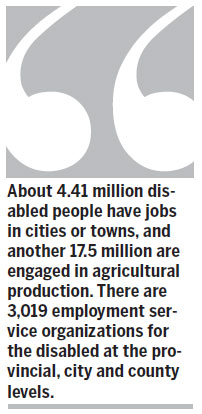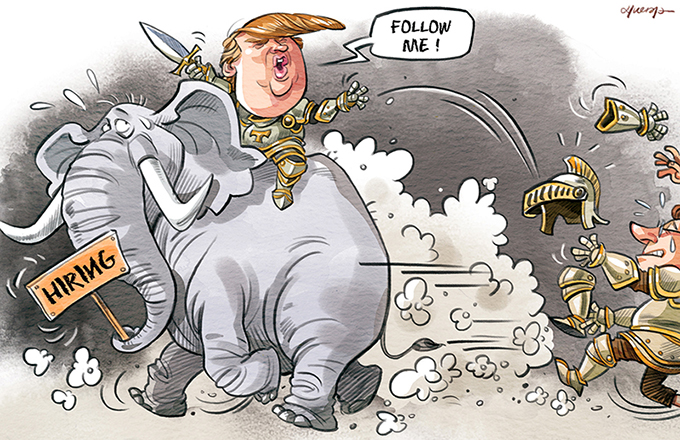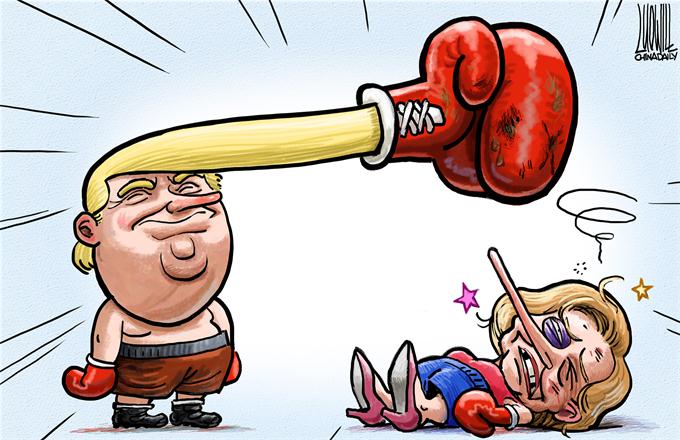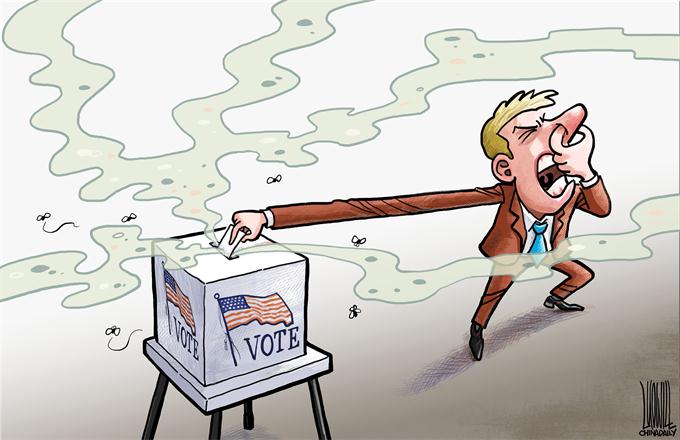Facts speak for themselves

Government has introduced legislative, administrative and judicial measures to guarantee the rights of disabled people
The 2013 World Human Rights Report released by New York-based Human Rights Watch criticized China for failing to fully protect disabled people's rights. But facts speak louder than words.
There are 85 million disabled people on the Chinese mainland, 6.3 percent of the overall population, and China was one of the earliest countries to advocate, promote and actively support the UN's Convention on the Rights of Persons with Disabilities. The government has paid great attention to fulfilling the obligations of the Convention, and based on China's reality, it has introduced legislative, judicial and administrative measures to guarantee the implementation of the terms of the Convention.
In the process of establishing and implementing laws, regulations and development projects related to disabled people's affairs, China has established a work pattern that, led by the government, supported by disabled people's organizations and with the participation of the entire society, has turned the principles and standards of the Convention into domestic practices.
At the Fourth Beijing Human Rights Forum, Jane Connors, chief of the UN's Special Procedures Branch at the Office of the High Commissioner for Human Rights, showed appreciation for China's positive approach to protecting disabled people's rights and praised the country for being the first to submit its report on implementing the Convention.
The China Disabled Persons' Federation was established in 1988 to protect disabled people's rights. Branches were established at or above the county level in the following years. Since 2009, the federation's nationwide system has been further improved, and its capability to meet the needs of disabled people has been increased.
Disabled people enjoy full political rights, and many of them are members of local and national political advisory bodies.
In 1990, China enacted the Law of the People's Republic of China on the Protection of Disabled Persons, and it revised it in 2008 to further strengthen the measures safeguarding the rights and interests of the disabled.
In May 2007, the government enacted the Regulations on the Employment of Persons with Disabilities, which specified concrete measures to promote the employment of disabled people and protect their right to work.
China issued a National Human Rights Action Plan in 2009 and 2012, which stipulated disabled people's rights in detail. And in July, the government issued a five-year plan (2011-15) for the national basic public service system, which promotes the provision of public services that suit disabled people's special demands, the creation of a social environment that enables disabled people to participate on equal terms, and stable institutional guarantees for disabled people's development.
The government has enacted and implemented more than 60 laws and regulations to protect the rights of disabled people. These laws and regulations form legal and institutional protection for disabled people's rights and promote their development.
The media are also paying greater attention to the protection of disabled people's rights, helping to make their voices heard and promoting public decision-making on protection and realization of their rights.
Disabled people's right to rehabilitation, medical treatment, education, employment and social security has been guaranteed. During the 11th Five-Year Plan period (2006-10), more than 10 million disabled people benefited from community rehabilitation services in 831 municipal districts and 1,676 counties and county-level cities. The goal of establishing barrier-free cities has been progressing in 100 cities. Barrier-free services in public spaces have been continuously improving and 79.5 percent of cities and towns have at least one barrier-free facility.
A total of 29,915 disabled people have been enrolled in general colleges and universities. And at the end of 2010 there were 1,705 special schools for visually and hearing impaired and mentally challenged children and youths and 2,775 special classes in ordinary compulsory education schools nationwide. The number of visually and hearing impaired and mentally challenged students attending school is 519,000. About 4.41 million disabled people have jobs in cities or towns, and another 17.5 million are engaged in agricultural production. There are 3,019 employment service organizations for the disabled at the provincial, city and county levels.
Human Rights Watch has made groundless accusations against China, turning a blind eye to the facts and the progress the country has made in protecting disabled people's rights in a short period of time.
The author is professor of history with Renmin University of China in Beijing.
(China Daily 02/08/2013 page8)




















